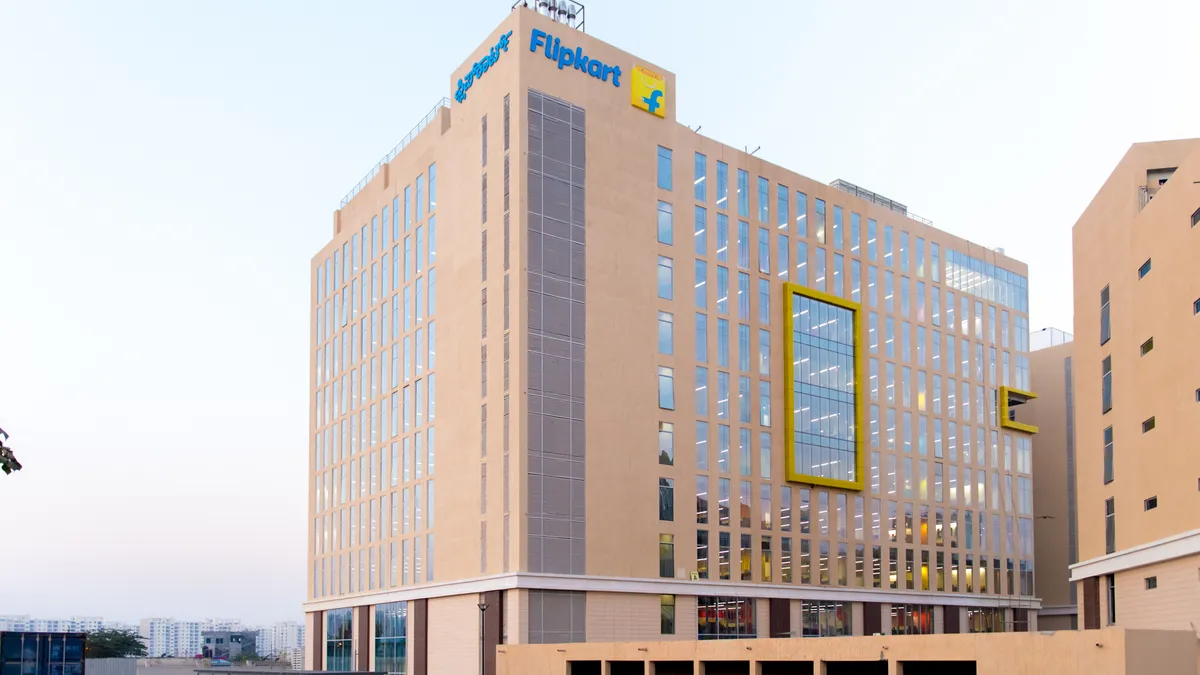Dive Brief:
- Flipkart has eliminated single-use plastic packaging in its fulfillment centers in India, the Walmart-owned e-commerce platform announced last week. It reached its goal while grappling with a surge in online retail demand.
- The company achieved this by implementing sustainable alternatives, such as recycled paper bags to replace polythene pouches and swapping shredded carton waste in place of bubble wrap.
- Flipkart is now shifting its focus to reducing single-use plastic packaging among its seller partners who fulfill orders directly from their own locations, Hemant Badri, senior vice president and head of supply chain, said in a statement.
Dive Insight:
Flipkart is juggling sustainability goals in an era of rapid growth for online retail, which calls for packaging to protect products during delivery. When Walmart acquired a majority stake in Flipkart in 2018, it said in a news release it expects e-commerce "to grow at four times the rate of overall retail" in India.
The COVID-19 pandemic has only accelerated e-commerce's rise, and Flipkart today offers more than 150 million products on its platform. The company announced Monday it raised $3.6 billion in funding to grow its operations further.
Flipkart did not respond to questions about the number of plastics it has eliminated, but single-use plastic packaging is a significant source of global waste. It's already the most prevalent plastic type produced on Earth and is difficult to collect, sort and recycle, according to a report from the Minderoo Foundation, an Australian philanthropic organization.
In March 2019, Flipkart's packaging team began seeking alternatives to single-use plastic as part of a broader sustainability initiative. After replacing plastic in filler materials and security bags, the company said it cut single-use plastic use in fulfilled shipments by 50% in May 2020.
Sustainable packaging is a goal for many businesses nowadays. Flipkart's parent company, Walmart, has committed to zero-waste operations by 2025. This includes 100% recyclable, reusable or industrially compostable packaging for its private brand packaging. Also in 2025, Lego plans to remove single-use plastic in all products, packaging and operations.
Amazon has detailed several steps to reduce waste in its e-commerce supply chain. It eliminatined single-use, thin film plastics last year in India "by replacing plastic materials like bubble wrap and air pillows with paper cushions and introducing plastic-free, biodegradable tape."
There's a business case for sustainability, according to a 2020 survey of supply chain professionals from Gartner. Those surveyed perceived waste reduction and water-efficiency improvements as the most likely sustainability initiatives to have a financial benefit. There's also a high amount of consumer interest. Seventy-one percent of people want single-use plastics banned as soon as possible, according to a 2019 survey by market research and consulting firm Ipsos.
"Some consumers may buy into a good spin job, but industry has to meet the expectations of consumers, environmental NGOs, government agencies, and their supply chain partners, who each represent unique business opportunities and risks," Adam Gendell, associate director of the Sustainable Packaging Coalition, told Supply Chain Dive in 2019.
Flipkart detailed another sustainability-focused initiative in its news release, saying it aims to reduce the need for an outer packaging layer by working with apparel, electronics and home furnishing brands to ship products in their original packaging. The company said it's shipping nearly 15% of products without this outer layer. Similar initiatives are in place at other logistics firms, such as Amazon's frustration-free packaging program and UPS Simple Rate, which allows sellers to ship in their own packaging at a flat rate.
Beyond its own operations, Flipkart is working with seller partners to help them shift to sustainable alternatives. The company said seller fulfillment operations have reduced single-use plastic packaging use by 27%.














